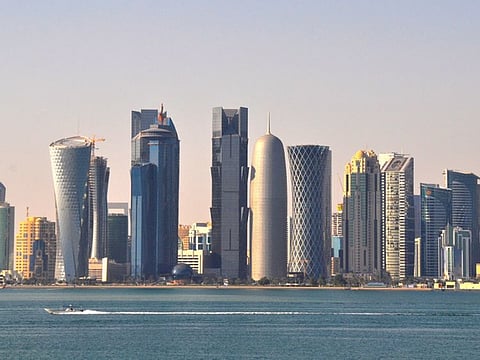Qatar should attend GCC summit
Doha must address lingering concerns of Gulf states and work to reduce tension

Saudi King Salman Bin Abdul Aziz has invited Qatar’s emir, Sheikh Tamim Bin Hamad Al Thani, to a meeting next week of the Gulf regional bloc in Riyadh. The invitation to the December 10 summit of the six-nation Gulf Cooperation Council (GCC) comes amid signs of reduced animosity between Qatar and Saudi Arabia, which has led an economic boycott of Doha since 2017.
Saudi Arabia and allies Egypt, Bahrain and the UAE closed their airspace to Qatar Airways and banned travel to the country over Doha’s backing to radical Islamists and its close ties with Iran. Saudi Arabia, Bahrain and UAE are currently participating in a regional football tournament in Qatar, having announced their participation at the last minute.
These countries had refused to participate in the previous Gulf Cup two years ago, which was originally scheduled to be held in Qatar just a few months after the crisis erupted. But they took part when the tournament was subsequently moved to Kuwait.
The emir has been represented by senior officials at GCC summits since the blockade was imposed, despite having received invitations. While the invitation to attend is not significant in and by itself, the general mood in the GCC is the most favourable it has ever been to finding a way out of the crisis. Therefore, the emir of Qatar should himself attend the summit where the momentum to resolve the dispute is at its highest.Gulf News
Kuwaiti Deputy Foreign Minister Khaled Al Jarallah sensed a change in mood. He noted that the boycotting countries’ decision to travel to Doha was “a clear indication of the progress towards solving the Gulf crisis”. An official from the Cairo-based Arab League is visiting Doha for a conference during the tournament, raising hopes for mediation efforts.
The emir has been represented by senior officials at GCC summits since the blockade was imposed, despite having received invitations. While the invitation to attend is not significant in and by itself, the general mood in the GCC is the most favourable it has ever been to finding a way out of the crisis. Therefore, the emir of Qatar should himself attend the summit where the momentum to resolve the dispute is at its highest.
However, despite positive statements coming out of Kuwait, Qatar has a tremendous responsibility to address lingering concerns of the Arab quartet. Qatar has not fulfilled its obligations resulting from a 2014 pact signed in Riyadh to resolve an earlier crisis between Doha and the Gulf countries.
Qatar-backed groups are continuing to destabilise Arab countries, including Saudi Arabia. Its stubborn approach in the past two years has not worked and goes against the interests of its Arab neighbours and Qatar itself.
Doha should make a concerted attempt to resolve the issues that caused a rupture in the regional bloc. Healing the rift will help Qatar return to the GCC fold and that would strengthen the regional alliance’s efforts to reduce tension in the region.
Sign up for the Daily Briefing
Get the latest news and updates straight to your inbox



